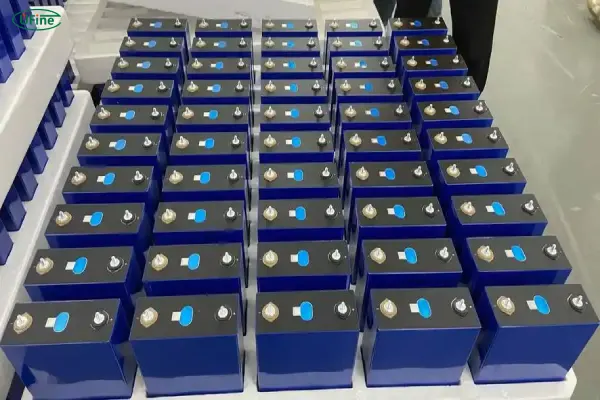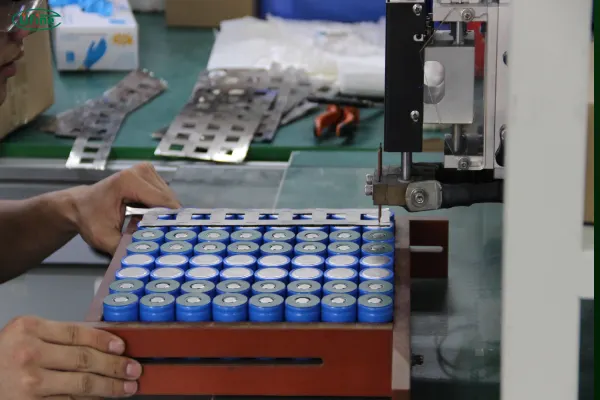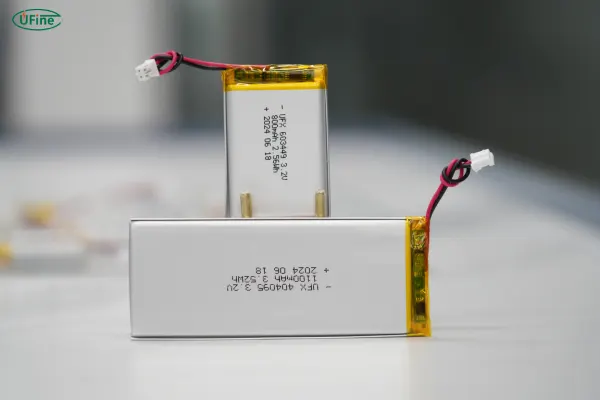The demand for LiFePO4 (Lithium Iron Phosphate) batteries has surged in recent years due to their longer lifespan, safety features, and high energy efficiency. As the world moves toward cleaner, renewable energy solutions, LiFePO4 batteries have found their place in solar energy systems, electric vehicles (EVs), off-grid power applications, and more. Naturally, many customers are looking for the cheapest LiFePO4 battery options without compromising on quality or safety.
At Ufine Battery, we specialize in custom-made lithium batteries tailored to specific needs, offering solutions with 17 years of experience. If you’re looking to buy the cheapest LiFePO4 battery, it’s essential to understand the factors that influence pricing, where to buy them, and the potential risks associated with very low-cost options.
In this article, we’ll explore key considerations for purchasing an affordable LiFePO4 battery, as well as provide tips on making the best choice based on your requirements.
Part 1. Global Share of LiFePO4 Batteries
LiFePO4 batteries have become increasingly popular due to their environmentally friendly nature and superior cycle life. As of recent industry reports, LiFePO4 holds a significant share of the global battery market:
- Global Demand: In 2023, LiFePO4 batteries accounted for over 30-40% of the total lithium battery market, with demand expected to continue rising due to their advantages in energy storage and electric vehicle adoption.
- Industry Growth: The growing shift toward renewable energy sources and electric mobility (e.g., EVs, e-bikes, and solar storage systems) is driving this demand.
Regional Market Share
China: China remains the largest consumer and producer of LiFePO4 batteries, accounting for 70-75% of global demand. Companies like BYD, CATL, and CALB are key players, driving the market with large-scale battery production for EVs and energy storage solutions. By 2025, LiFePO4 batteries are expected to make up 80% of the battery capacity used in electric vehicles produced in China.
North America and Europe: North America and Europe are increasingly adopting LiFePO4 batteries, particularly in the EV and ESS sectors. By 2028, the combined market share of LiFePO4 batteries in these regions is expected to reach 20-25%, with major advancements in energy storage applications.
Rest of the World: Markets in India, Africa, and Southeast Asia are beginning to see more LiFePO4 battery adoption, driven by the growth of solar energy installations and the push for affordable energy storage solutions. These regions are projected to account for 10-15% of the global market by 2030.
For consumers looking to buy the cheapest LiFePO4 battery, it’s essential to note that price fluctuations can occur based on factors like raw material costs, manufacturing efficiency, and geographic location.
Part 2. What Affects the Price of LiFePO4 Batteries?
The price of a LiFePO4 battery is influenced by several key factors:
- Raw Material Costs: The price of lithium, iron, and phosphate — the primary components of LiFePO4 batteries — fluctuates with global supply and demand. Market prices for lithium, in particular, can significantly impact the cost of batteries.
- Battery Capacity and Size: Larger capacity batteries (e.g., 200Ah or more) generally cost more due to the increased amount of material and engineering required. A 12V 100Ah LiFePO4 battery will typically cost less than a 48V 200Ah battery.
- Manufacturing Location: Batteries made in regions with lower labor costs or subsidies may have cheaper price tags. However, manufacturing quality and adherence to safety standards should not be compromised for cost.
- Battery Management System (BMS): High-quality BMS ensures battery safety, longevity, and performance. A battery without an efficient BMS is often cheaper but can pose safety risks.
- Brand and Warranty: Well-known manufacturers with strong reputations typically charge higher prices due to their commitment to quality and warranty services.
Part 3. Common LiFePO4 Battery Price Range
The price range for LiFePO4 batteries varies depending on several factors, including the battery’s capacity, voltage, and quality. Below is an estimated price range for different LiFePO4 battery configurations:
- 12V 50Ah LiFePO4 Battery: $200 – $400
- 12V 100Ah LiFePO4 Battery: $400 – $700
- 12V 200Ah LiFePO4 Battery: $700 – $1,200
- 24V 200Ah LiFePO4 Battery: $1,200 – $2,500
- 48V 100Ah LiFePO4 Battery: $2,500 – $4,500
Note: These prices are approximate and can vary depending on the supplier, quality of the battery, and other factors.
If you’re looking for the cheapest LiFePO4 battery, smaller capacities (e.g., 12V 50Ah or 12V 100Ah) typically cost less. However, higher-capacity batteries offer better cost per kWh efficiency, making them a better long-term investment.
Part 4. Where to Buy Affordable LiFePO4 Batteries
When looking for the cheapest LiFePO4 battery, you have several options:
- Direct Manufacturers: Buying directly from manufacturers like Ufine Battery ensures that you receive the best value for money. By working with us, you can get customized LiFePO4 battery solutions that match your needs, whether it’s for solar systems, electric vehicles, or other applications.
- Online Marketplaces: Websites like Amazon, AliExpress, and eBay often feature competitive prices for LiFePO4 batteries, but be cautious of unverified sellers and subpar products.
- Wholesale Distributors: If you’re purchasing in bulk, contacting wholesale distributors can help secure bulk discounts on LiFePO4 batteries. We, at Ufine Battery, offer bulk purchasing options for commercial and industrial clients.
- Local Battery Dealers: Many regions have authorized battery dealers who offer discounts, especially during sales events or promotional offers.
Tip: Always check the warranty and return policy before purchasing from any online marketplace or local dealer.
Part 5. Why Are Some LiFePO4 Batteries So Cheap?
Batteries with low prices may seem attractive, but cheap LiFePO4 batteries often come with risks. Here are a few reasons why some LiFePO4 batteries are priced lower than others:
- Low-Quality Cells: Some inexpensive batteries use lower-quality lithium cells or older batches that do not perform as well over time.
- Lack of Battery Management System (BMS): BMS is crucial for ensuring the battery operates safely and optimally. Cheaper batteries may lack a BMS or have a less advanced version that could reduce the lifespan or safety of the battery.
- Poor Manufacturing Standards: Low-priced batteries may not meet strict safety or performance standards, making them prone to overheating or short-circuiting.
- No Warranty: Many budget LiFePO4 batteries come without warranty or with limited support, leaving customers at risk if the battery malfunctions.
It’s essential to balance cost savings with the potential risks associated with low-cost batteries. When buying cheap LiFePO4 batteries, make sure they come with proper certifications and a reliable BMS.
Part 6. Potential Risks of Buying Cheap LiFePO4 Batteries
While it’s tempting to buy a cheap LiFePO4 battery, it’s important to understand the potential risks involved:
- Shorter Lifespan: Batteries without proper quality control or those that use subpar materials may degrade faster, resulting in a shorter lifespan (fewer charge cycles).
- Safety Issues: Batteries with poorly designed BMS or inadequate protection against overcharging, overdischarging, or short circuits could pose safety hazards such as thermal runaway or fire.
- Inconsistent Performance: Low-quality batteries may provide inconsistent voltage output or fail to meet the specifications listed by the manufacturer, leading to unreliable performance.
- Limited Warranty and Support: Cheaper batteries often come with limited or no warranty, and getting customer support or a replacement may be difficult if something goes wrong.
Part 7. Why Are Some LiFePO4 Batteries So Expensive?
The price of high-quality LiFePO4 batteries can be significantly higher due to several factors:
- Superior Battery Cells: Premium LiFePO4 cells are sourced from reputable manufacturers and offer higher efficiency, longer lifespan, and better thermal stability.
- Advanced Battery Management System (BMS): High-end batteries come with sophisticated BMS that ensures safety, optimal performance, and efficient charge/discharge cycles.
- Rigorous Quality Control: High-quality batteries undergo strict testing for safety and performance, ensuring they meet international standards and are reliable for long-term use.
- Warranty and Support: Leading brands offer longer warranties (3-10 years), and they provide after-sales support, ensuring that customers receive the necessary assistance if the battery malfunctions.
- Custom Solutions: Manufacturers like Ufine Battery offer customized LiFePO4 batteries for specific applications, ensuring that customers get tailored solutions for unique requirements.
Part 8. Final words
When looking for the cheapest LiFePO4 battery, it’s essential to consider factors like quality, safety, and long-term performance. While buying a cheap battery may seem like a good deal at first, low-cost options can come with significant risks, including shorter lifespan, safety concerns, and poor performance.
If you’re looking for affordable yet high-quality LiFePO4 batteries, Ufine Battery offers custom-designed solutions tailored to meet your needs, ensuring reliable performance and long-lasting durability at competitive prices. With over 17 years of expertise, we’re ready to assist you in choosing the right battery for you.
Related Tags:
More Articles

How to Choose the Best Floor Scrubber Battery for Commercial Cleaning?
Selecting the ideal floor scrubber battery ensures a long runtime, rapid charging, and minimal maintenance for efficient commercial cleaning operations.
Battery for Blower vs Battery for Leaf Vacuum: Which One Should You Choose?
Battery for blower vs leaf vacuum—learn the key differences in power, fit, and runtime to choose the right battery for your outdoor tool needs.
How to Choose the Right Battery for Blower?
Choosing the right blower battery? Consider voltage, capacity, chemistry & usage. This guide helps match the best battery for peak performance.
How to Choose the Best Insulated Battery Box for Lithium Batteries?
Choosing the Best Insulated Battery Box for Lithium Batteries? Discover key factors such as size, material, and safety for optimal protection and performance.
7 Critical Elements on a Lithium Battery Shipping Label
What must be on a lithium battery shipping label? Learn 7 key elements to ensure safety, legal compliance, and correct handling across all transport modes.






